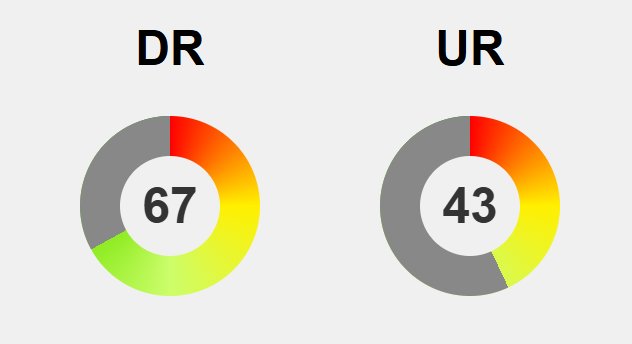The Magna Carta of 1215 was born out of a turbulent clash between monarchy and nobility, challenging the divine authority of kings and laying the groundwork for modern justice. But what secrets does this ancient document still hold about the nature of authority, rights, and accountability today? As it shifted power from unchecked royal rule to legal limits, its principles—such as due process and protection against illegal detention—have become cornerstones of contemporary law. These ideas continue to influence global human rights, democratic movements, and digital privacy laws, proving that the legacy of Magna Carta remains vital amid evolving societal challenges. Yet, in an era of technological revolution and political upheaval, its enduring relevance prompts us to ask: how will these age-old principles adapt to safeguard justice and human dignity in the future? The answers lie in understanding its historic impact and its ongoing role in shaping a fairer world.
Unraveling the Turbulent Origins and Enduring Impact of Magna Carta
The Magna Carta of 1215 emerges from a turbulent period in English history marked by political instability, social unrest, and a crisis of authority. King John’s reign exemplifies these pressures, as his military failures in France—particularly the loss of vital territories—undermined his legitimacy both domestically and internationally. These defeats drained royal resources and fueled dissatisfaction among the nobility, who began to question the king’s ability to govern effectively. The resulting financial strain compelled John to pursue increased taxation, often without consulting his barons or the broader realm, further alienating key supporters and intensifying tensions.
Amid these mounting crises, the relationship between the monarchy and its subjects deteriorated sharply. The records show that the barons felt their rights and traditional privileges were being disregarded, and they grew increasingly resentful of the king’s arbitrary exercise of power. This discontent culminated in open rebellion, with the barons taking up arms and besieging London to press their demands for legal protections and limits on royal authority. The escalation into armed conflict underscored the deep fractures within the kingdom’s governance, highlighting the urgent need for a negotiated settlement.
The negotiations that followed produced the Magna Carta, initially a pragmatic document aimed at addressing specific grievances such as illegal imprisonment, excessive taxation, and the unchecked authority of the king. The barons sought to secure legal protections that would serve as safeguards against future abuses, while King John aimed to restore stability and assert his authority. The resulting charter was not merely a list of demands but a symbolic assertion that even the monarch must operate within the bounds of law. It marked a fundamental shift—an acknowledgment that royal power was subject to legal constraints, challenging the medieval doctrine of divine right.
The drafting of Magna Carta was revolutionary in its conception of governance. It embedded the idea that justice should be rooted in shared customs and legal principles rather than the monarch’s whims. The document’s clauses emphasized the importance of lawful process, protection from illegal detention, and the need for consultation with the realm’s leading figures before imposing taxes. These provisions laid the groundwork for the development of constitutional notions, asserting that the king’s authority was not absolute but conditional upon adherence to established laws and customs.
While often viewed as a limited agreement primarily benefiting the barons, the Magna Carta’s influence extended well beyond its immediate context. It embodied a societal desire for justice, fairness, and the limitation of arbitrary power—concepts that resonated through subsequent centuries. Its language contained seeds of ideas that would evolve into modern human rights and the rule of law, signaling a movement toward accountability and shared governance. The document’s significance lies not only in its specific clauses but in its role as a catalyst for ongoing struggles to define legitimate authority within a legal framework.
The year 1215 remains a pivotal moment because it established that even the king was subject to the law. This challenged the prevailing doctrine of divine right, which held that monarchs ruled by divine authority and were above earthly laws. Magna Carta introduced the revolutionary principle that royal legitimacy depended on lawful conduct, setting a precedent for future constitutional developments. Its influence extended across centuries, shaping the evolution of legal systems that sought to balance power, protect rights, and ensure justice within a framework of accountability.
Examining the events leading to Magna Carta’s creation reveals a convergence of military failures, fiscal crises, and legal disputes. King John’s defeats in France depleted royal coffers and diminished his authority among the barons, whose support was essential for stability. His aggressive and often unilateral taxation policies—imposed without consultation—heightened resentment and fueled rebellion. When tensions reached a breaking point, the barons responded with armed resistance, forcing the king to negotiate a compromise. The resulting document addressed immediate grievances and aimed to restore order, but its deeper significance lay in establishing the principle that no one, not even the king, was above the law.
In essence, the Magna Carta encapsulates a defining moment in the history of governance. It signifies a shift from the absolute authority of the ruler toward a recognition of legal limits and shared responsibility. Although initially a product of specific political circumstances, its underlying principles have endured, inspiring centuries of legal and political thought. The document’s legacy continues to influence notions of justice, individual rights, and the rule of law, echoing in modern democracies and constitutional frameworks worldwide. Its history reminds us that even in times of crisis, the pursuit of justice and accountability can reshape the very foundation of authority.
Applying Medieval Principles to Modern Justice and Society
The principles embedded in Magna Carta have proven remarkably resilient, shaping the development of modern legal systems far beyond their medieval origins. Their core ideas—limiting arbitrary authority, safeguarding individual rights, and ensuring justice—serve as foundational elements in contemporary laws and judicial practices. These ideas are not confined to historical texts; they actively influence how laws are drafted, interpreted, and enforced across diverse jurisdictions. For example, the concept of habeas corpus, which secures the right against unlawful detention, traces directly to clauses within the 1215 charter. This principle guarantees that no one can be imprisoned without lawful cause and that detainees have the right to challenge their detention before a court. Courts worldwide invoke habeas corpus regularly, demonstrating the enduring power of medieval ideas in preventing abuses of authority and protecting personal freedom.
Similarly, the notion of due process—ensuring fair treatment and legal fairness—derives from Magna Carta’s emphasis on legal protections and accountability. Modern judicial systems, whether in common law or civil law traditions, rely on due process rights to guarantee fair trials, impartial hearings, and the opportunity for individuals to be heard. These protections prevent rulers and authorities from acting arbitrarily, reinforcing the idea that justice must be rooted in transparent and consistent procedures. The influence of Magna Carta is evident in the constitutions and legal statutes of many countries, where these principles are enshrined as fundamental rights. This demonstrates how a document written over eight centuries ago continues to underpin the rule of law in diverse legal frameworks, ensuring that authority remains accountable and rights protected.
Beyond the courtroom, Magna Carta’s legacy extends into societal movements that champion civil liberties and human rights. Its core message—limiting unchecked power and defending individual freedoms—inspires activism worldwide. When governments attempt overreach or suppress dissent, advocates frequently invoke Magna Carta as a historic precedent, reminding authorities that power must be exercised within legal boundaries. Civil society organizations, human rights campaigns, and legal advocates leverage its symbolism to challenge abuses and promote accountability. This ongoing influence fosters a culture of vigilance, where citizens actively insist that those in power operate within established legal limits. In this way, the document’s principles continue to serve as a moral compass, guiding the defense of liberty and justice across generations.
Applying Magna Carta’s ideas today involves recognizing their adaptability to contemporary challenges. Modern societies grapple with balancing individual rights against national security concerns, especially as technological advancements create new avenues for surveillance and data collection. The fundamental notions of limiting authority and protecting personal liberty are reinterpreted in the digital age. Movements advocating for digital privacy rights and responsible data use draw directly from Magna Carta’s emphasis on safeguarding individuals from arbitrary interference. Legal reforms increasingly aim to establish safeguards against government overreach in cyberspace, echoing the original intent of protecting personal dignity. These adaptations highlight the flexibility of Magna Carta’s core principles, allowing them to remain relevant amid changing technological landscapes.
Judicial authorities and lawmakers play a crucial role in translating these ancient principles into effective protections for contemporary society. Courts routinely invoke clauses related to justice, lawful process, and protections from illegal detention when ruling on cases involving civil liberties. Their decisions reinforce the idea that rights originating from 1215 are not mere historical artifacts but living principles vital to modern governance. Policymakers analyze and incorporate these ideas into new laws addressing emerging issues like digital privacy, governmental oversight, and surveillance. This ongoing process ensures that justice remains accessible and authority remains accountable, preserving the spirit of Magna Carta within an evolving legal system. It is through this dynamic interpretation that its legacy endures and adapts to modern contexts.
The influence of Magna Carta extends into the global arena, where its core principles underpin international human rights frameworks. Treaties and conventions frequently draw upon its emphasis on dignity, liberty, and justice to establish standards for governance and individual freedoms. Movements advocating transparency, accountability, and the rule of law invoke these principles to challenge authoritarian regimes and defend democratic values. As nations face new threats to personal and political rights, the foundational ideas of 1215 serve as a moral anchor, reminding the world that authority must be constrained by law and that justice is a universal aspiration. This universal appeal amplifies its significance, making Magna Carta a symbol of resistance against tyranny and a blueprint for global justice.
Looking toward the future, the principles of Magna Carta will likely continue to influence the evolution of justice and governance worldwide. As digital technology advances, new challenges—such as mass surveillance, data security, and cybercrime—demand legal protections rooted in fairness and accountability. The document’s emphasis on limiting power and safeguarding individual rights offers a guiding framework for crafting laws that address these complexities. Developing robust digital privacy standards and oversight mechanisms ensures that authority is exercised responsibly, echoing the original intent of the 13th-century charter. Its enduring relevance underscores that the core ideals of Magna Carta are not static but adaptable, capable of guiding societies through the uncertainties of technological progress while maintaining respect for human dignity and justice.
Finally, the continued advocacy inspired by Magna Carta fuels societal efforts to promote civil liberties and social justice. Its emphasis on limiting power and defending individual rights resonates strongly with contemporary movements for equality, transparency, and accountable governance. Citizens, activists, and legal reformers leverage its symbolism to challenge abuses, demand reforms, and foster a culture of responsibility. This ongoing engagement underscores the enduring moral authority of Magna Carta’s principles, which serve as a rallying cry for those committed to building more just and equitable societies. As the world navigates new challenges, the document’s legacy remains a vital source of inspiration, ensuring that the pursuit of justice and the protection of rights remain central to societal progress.
Future Horizons: The Continued Relevance and Evolution of Magna Carta
As we look toward the future, the enduring principles of Magna Carta continue to shape the trajectory of justice and governance worldwide. Its core idea—that no individual, regardless of status or power, is above the law—remains a foundational pillar of modern legal and political systems. This legacy fuels ongoing efforts to ensure accountability, transparency, and the protection of individual rights in an increasingly complex global landscape. As societies evolve, these principles serve as moral anchors guiding legal reforms and institutional developments, reminding us that the rule of law is essential to a just and equitable world.
Emerging technological advancements pose both challenges and opportunities for the principles rooted in Magna Carta. Digital rights and data privacy now occupy center stage in debates about authority and individual liberty. Movements advocating for responsible data use, transparency in government surveillance, and the protection of personal information echo the document’s original emphasis on safeguarding personal dignity from arbitrary interference. As new arenas of influence—such as cyberspace and artificial intelligence—expand, legal frameworks must adapt swiftly to uphold these age-old ideals in digital contexts, ensuring that technological progress does not come at the expense of fundamental rights.
The global fight against authoritarianism and oppression also draws heavily on Magna Carta’s legacy. Countries experiencing political repression invoke its principles to justify constitutional safeguards and judicial independence. International human rights treaties, like the Universal Declaration of Human Rights, reflect its influence by emphasizing dignity, liberty, and justice. These frameworks serve as moral compasses amid crises, reaffirming that power must be constrained by law and that justice is a universal aspiration. Consequently, Magna Carta’s ideals transcend national borders, reinforcing a shared moral language that champions the dignity of individuals against abuses of authority worldwide.
Legal systems across the globe continue to reinterpret and embed the principles of Magna Carta into modern statutes and constitutional protections. Courts routinely invoke its ideas when ruling on issues related to detention, trial fairness, and government accountability. The development of laws addressing digital privacy, governmental oversight, and anti-corruption measures demonstrates the document’s ongoing relevance. These adaptations ensure that its core values remain vital in confronting contemporary challenges—whether safeguarding personal freedom or curbing unchecked power—affirming that the legacy of 1215 persists through evolving legal landscapes.
Beyond formal law, Magna Carta’s influence extends into societal movements advocating civil liberties, social justice, and human rights. Its emphasis on limiting power and defending individual freedoms inspires activists and policymakers alike. Citizens leverage its symbolism to challenge overreach, demand transparency, and hold authorities accountable. This active engagement fosters a culture of vigilance and responsibility, ensuring that the principles of justice and equality remain central in the ongoing pursuit of societal progress. As new issues arise—such as climate justice and digital rights—these foundational ideals continue to guide and energize efforts for a fairer world.
Looking ahead, the principles embedded in Magna Carta will likely shape the evolution of justice in ways we can scarcely imagine today. Technological innovations, from artificial intelligence to biometric surveillance, will test our commitment to fairness and accountability. Developing robust legal protections for digital privacy, data security, and individual autonomy becomes imperative, echoing the document’s original intent of safeguarding personal dignity. These efforts will require a delicate balance—upholding rights without stifling innovation—yet the core ideals of law, justice, and human dignity provide a resilient blueprint. As societies confront these new frontiers, Magna Carta’s legacy offers guidance, reminding us that justice is a living, adaptable pursuit rooted in timeless principles.
Finally, the ongoing advocacy inspired by Magna Carta reaffirms its place as a moral touchstone in the global effort for justice and human rights. Citizens, activists, and leaders continue to draw on its symbolism to challenge injustice, promote transparency, and expand civil liberties. Its principles serve as a rallying cry in the fight against tyranny and inequality, fostering a collective resolve to build more inclusive and accountable societies. As the world navigates the complexities of technological change, geopolitical shifts, and social upheaval, the enduring relevance of Magna Carta underscores the vital importance of law rooted in justice, fairness, and respect for human dignity—principles that will remain central to shaping a better future for generations to come.
As stakeholders continue to grapple with these issues, understanding the historical significance of foundational documents like Magna Carta remains crucial. For those interested in exploring how its principles are applied today, learning more about its ongoing influence can be enlightening. To gain deeper insights, you can visit this comprehensive overview of Magna Carta that highlights its evolving role in modern governance and law.


